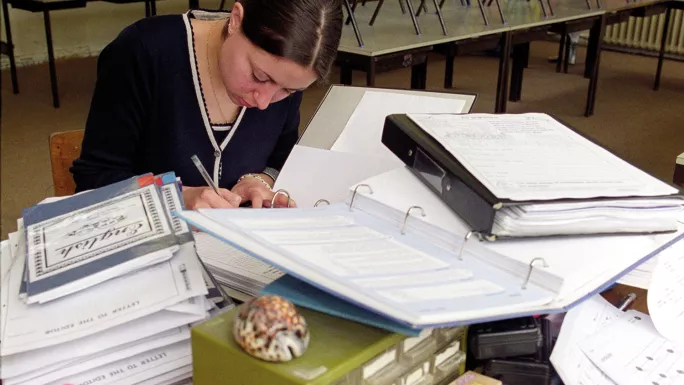Sats sapping the joy from pupils and teachers alike

From tears over tough papers to schools offering special breakfasts to reduce stress - the mental pressure that is experienced by pupils during Sats season has been well documented.
And the problem has only been underlined by the results of a Tes and NEU teaching union survey, which asked 500 teachers about the impact of the primary testing regime at their school.
It reveals that 83 per cent of teachers feel that Year 6 Sats have a detrimental effect on pupils’ mental health - and that 54 per cent feel the same about tests taken by Year 2 pupils.
What is more surprising is that teachers feel that Sats are taking an even greater toll on their own lives.
Almost nine in 10 teachers (89 per cent) say Year 6 Sats are detrimental to teachers’ mental health and 74 per cent say the same about Year 2 Sats.
Rage against the education machine
But perhaps it is not so surprising. After all, teaching is not only about fronted adverbials and subordinate clauses - it is about sharing birthday wishes, listening to terrible jokes, and watching as dance crazes and hair styles sweep through your class.
It is about not only passing on knowledge, but instilling a joy of learning. So being forced to watch those same pupils crying over a test paper can be hard. “I am afraid of what education is becoming: a machine to churn out disengaged, bored children who never get any respite from the tedium of testing and accountability,” says one teacher in their response to the survey.
Other adverse aspects of the testing regime have also been highlighted in the Tes/NEU survey, which some experts believe could help explain the decline in teacher mental health.
Almost three-quarters of teacher respondents say that the Year 6 curriculum is being squeezed “a lot” to allow extra Sats practice, and 32 per cent say the same is happening in Year 2.

This narrowing of the curriculum can have an effect on teachers’ stress levels because it clashes with their beliefs, according to Brian Apter, chair of the division of educational and child psychologists at the British Psychological Society.
“Key stage 1 Sats are terribly unpopular with teachers,” he says. “The more narrowing of the curriculum occurs and the more teachers feel compelled to teach to Sats, the more teachers will be unhappy.
“Being able to move the curriculum around according to the youngsters you are teaching is really important.
“We need to radicalise the whole teaching agenda towards the joy of learning, the joy of curiosity, and I think that underpins a lot of teachers’ beliefs.”
Testing linked to pay
And then there is the fact that the results of the tests can make a real difference to teachers’ pay.
In October, a Department for Education research report into teacher-performance pay reforms found that, in 98 per cent of schools, all pay progression is related to performance and that 69 per cent of schools use pupils’ test attainment to measure a teacher’s performance against “the expected national level”.
There is also a huge amount of work involved in testing - and to do something that not all teachers may believe in, but that they are told is the main measure of their value.
Julian Stanley, chief executive of counselling service the Education Support Partnership, says the system is at risk of driving away some of its most dedicated teachers.
“It is essential that we don’t allow testing to turn teaching into an unmanageable task,” he says. “This risks a further rise in poor mental health among the profession, and alienating those with the passion and skill to succeed.”
Nansi Ellis, assistant general secretary of NEU (ATL section), has already witnessed the problem.
“People don’t want to teach in those two year groups [Year 2 and Year 6] because they are the really stressful ones,” she says.
“They feel they are not doing a good job by their pupils because they are having to focus on literacy and maths, which are important, but are not everything.
“So they feel they are letting the kids down by doing this stuff they don’t feel they should be doing.
“It just grinds you down. And that’s why people leave.”
You need a Tes subscription to read this article
Subscribe now to read this article and get other subscriber-only content:
- Unlimited access to all Tes magazine content
- Exclusive subscriber-only stories
- Award-winning email newsletters
Already a subscriber? Log in
You need a subscription to read this article
Subscribe now to read this article and get other subscriber-only content, including:
- Unlimited access to all Tes magazine content
- Exclusive subscriber-only stories
- Award-winning email newsletters